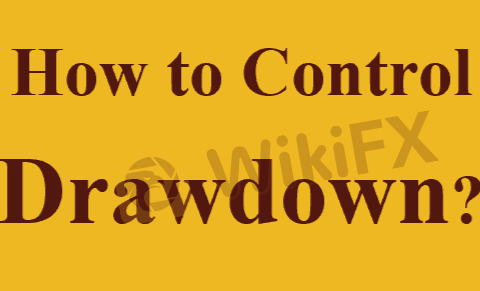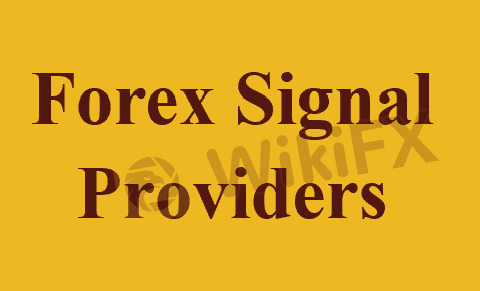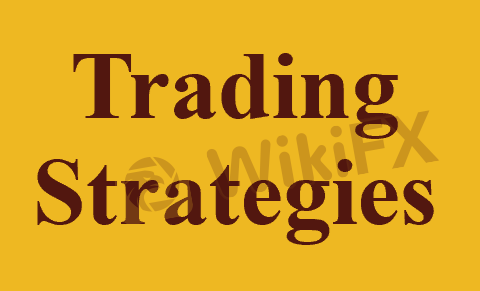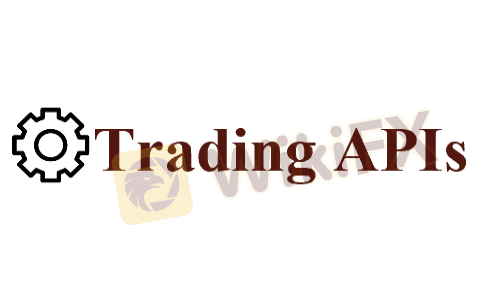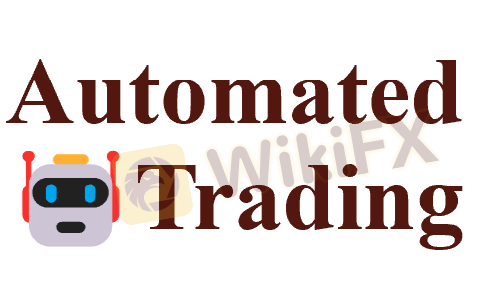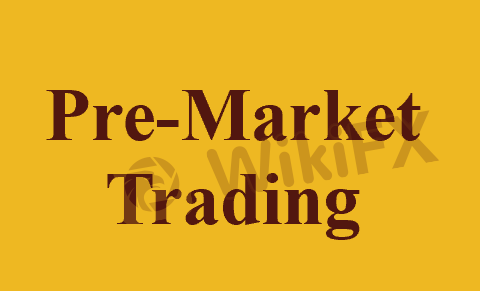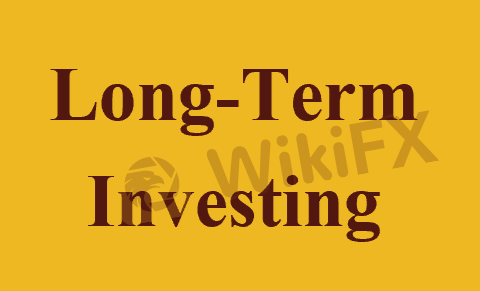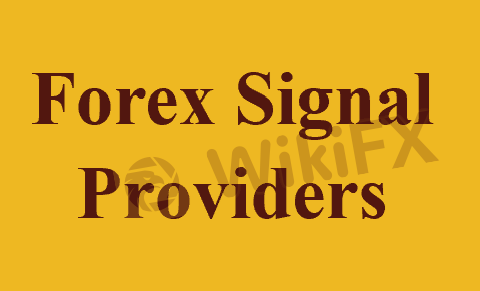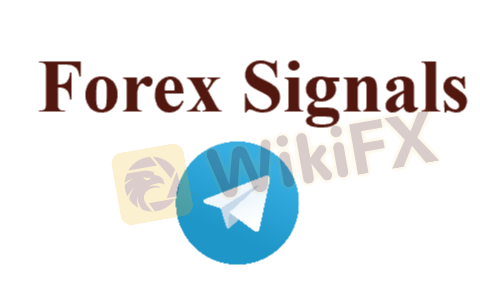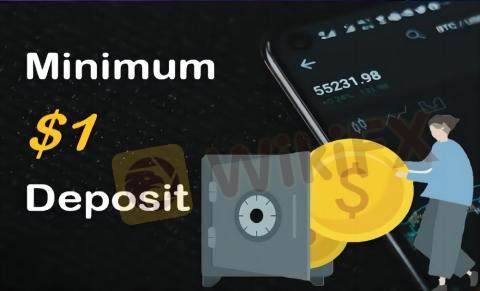A spread is the difference in pips between the BID and ASK Price Quotes (buy/sell) of a currency pair such as the EUR/USD in the forex market. Many brokers use a spread to reward themselves for each transaction their customers make.
In a word, the spread is the trading cost of each transaction conducted by traders and the basic compensation for forex brokers. Since spreads offered vary from brokers to brokers, finding a forex broker with low spreads is essential and can lower trading costs to a large extent.
A low spread typically suggests minimal volatility and great liquidity. Below is our list of best forex brokers with low spreads for your reference.
Best Low Spread Forex Brokers for 2024
A long-established Broker, Strictly Regulated by Multiple Regulatory Bodies in Various Jurisdictions, Offering Sufficient Reliability.
Over 80 Currency Tradable, Competitive Pricing Structure with Tight Spreads from 0 Pips.
A Multi-regulated Broker for you to Start Real Trading with a $1 Initial Deposit.
Incredibly Unlimited Leverage Offering for Asia, Rare Among Brokers.
A Stringently Regulated Broker, Reliable and Safe to Trade With, The Choice of Over 3500,000 Clients from Over 190 Countries.
Quick & Easy to Start Your Real Trading by Funding As Low As 5 USD, Lower & Friendlier Cost Structure Available, Advanced Trading Platforms & Tools Drive You Succeed into the Forex World.
more
Best Low Spreads Forex Brokers Video
Comparison of the Best Low Spread Forex Brokers for 2024
Forex Broker
License
Minimum Spread
Maximum Leverage
Minimum Deposit
Open account
Details
Compare
10 Best Forex Brokers with Low Spreads Overall

| Regulated Country | Regulated Authority | Regulated Entity | License Type | License Number |
 |
ASIC | STONEX FINANCIAL PTY LTD | Market Making(MM) | 345646 |
 |
FCA | Gain Capital UK Limited | Market Making(MM) | 113942 |
 |
FSA | GAIN Capital Japan Co., Ltd | Retail Forex License | 関東財務局長(金商)第291号 |
 |
NFA | GAIN CAPITAL GROUP LLC | Market Making(MM) | 0339826 |
 |
IIROC | GAIN Capital - FOREX.com Canada Ltd. | Market Making(MM) | Unreleased |
 |
CIMA | GAIN Global Markets, Inc | Market Making(MM) | 25033 |
 |
MAS | STONEX FINANCIAL PTE. LTD. | Retail Forex License | Unreleased |
FOREX.com is a reputable online forex and CFD broker based in the United States. Established in 2001, it has built a strong reputation in the industry. This broker offers a diverse selection of trading instruments, such as forex, commodities, and indices, to meet the needs of both individual and institutional traders. One of the standout features of this platform is its user-friendly and versatile trading interface. Traders can choose between the popular MetaTrader 4 (MT4) platform or the proprietary web-based platform. Both options offer a robust and intuitive experience for executing trades and managing portfolios.
Minimum Spread: 0.0 pips

| Regulated Country | Regulated Authority | Regulated Entity | License Type | License Number |
 |
ASIC | TRADING POINT OF FINANCIAL INSTRUMENTS PTY LTD | Market Making(MM) | 443670 |
 |
CYSEC | Trading Point Of Financial Instruments Ltd | Market Making(MM) | 120/10 |
 |
FSC | XM GLOBAL LIMITED | Retail Forex License | 000261/397 |
 |
DFSA | Trading Point MENA Limited | Retail Forex License | F003484 |
XM was established in 2009 and is a CFD and forex broker operating online. With its headquarters in Cyprus and under the watchful eye of the Cyprus Securities and Exchange Commission (CySEC), this firm is a respected member of the brokerage community. XM provides trading services to customers all around the world and provides access to a wide variety of trading instruments, such as foreign exchange, commodities, equities, and indices.
Minimum Spread: 0.6 pips

| Regulated Country | Regulated Authority | Regulated Entity | License Type | License Number |
 |
CYSEC | Forextime Ltd | Market Making(MM) | 185/12 |
 |
FCA | Exinity UK Ltd | Straight Through Processing(STP) | 777911 |
 |
FSC | EXINITY LIMITED | Retail Forex License | C113012295 |
FXTM is a reputable global online brokerage that operates under the regulation of multiple jurisdictions worldwide, such as the UK, Cyprus, South Africa, and Mauritius. Established in 2011 in Limassol, Cyprus, FXTM has experienced significant growth and currently caters to over 2 million accounts in over 180 countries. FXTM offers a wide range of tradable instruments, giving retail traders, institutions, and introducers access to over 250 options. These include forex, stocks, indices, commodities, cryptocurrencies, and ETFs. Take advantage of leverage up to 1:1000, enjoy competitive spreads, and experience fast execution on the popular MetaTrader 4 and MetaTrader 5 platforms. FXTM is known for its dedication to educating traders, providing customer support in multiple languages, and offering a wide range of trading resources to empower traders with the confidence to trade. FXTM has established itself as a reputable global broker in just ten years of operation, thanks to its transparent pricing, tight spreads, and advanced trading tools.
Minimum Spread: 0.6 pips

| Regulated Country | Regulated Authority | Regulated Entity | License Type | License Number |
 |
FCA | Exness (UK) Ltd | Market Making(MM) | 730729a |
 |
CYSEC | Exness (Cy) Ltd | Market Making(MM) | 178/12 |
 |
FSCA | EXNESS ZA (PTY) LTD | Retail Forex License | 51024 |
 |
FSA | Exness (SC) Ltd | Retail Forex License | SD025 |
Exness is an online forex and CFD broker that was established in 2008. Registered in Cyprus, this company has expanded its reach to become a well-known brokerage firm, providing trading services to clients around the world. Exness is renowned for its intuitive trading platforms and extensive selection of financial instruments, which have made it a favoured option for traders in the foreign exchange and financial markets.
Minimum Spread: 0.0 pips

| Regulated Country | Regulated Authority | Regulated Entity | License Type | License Number |
 |
ASIC | EIGHTCAP PTY LTD | Market Making(MM) | 391441 |
 |
FCA | Eightcap Group Ltd | Straight Through Processing(STP) | 921296 |
 |
SCB | Eightcap Global Limited | Retail Forex License | SIA-F220 |
Eightcap is an online brokerage firm that was established in 2009. Headquartered in Melbourne, Australia, this company offers access to a wide range of financial markets, such as forex, stocks, indices, commodities, and cryptocurrencies. The company provides trading services to clients globally, with a particular emphasis on retail traders and investors.
Minimum Spread: 0.0 pips

| Regulated Country | Regulated Authority | Regulated Entity | License Type | License Number |
 |
ASIC | INTERNATIONAL CAPITAL MARKETS PTY. LTD. | Market Making(MM) | 335692 |
 |
CYSEC | IC Markets (EU) Ltd | Market Making(MM) | 362/18 |
IC Markets operates as an online forex and CFD broker, based in Australia. The company was established in 2007 and has its main office in Sydney, Australia. It is renowned for its diverse selection of trading instruments and competitive spreads, serving both individual and institutional traders worldwide. IC Markets is regulated by the Australian Securities and Investments Commission (ASIC) and is well-known for its transparent and high-speed trading environment.
Minimum Spread: 0.0 pips

| Regulated Country | Regulated Authority | Regulated Entity | License Type | License Number |
 |
ASIC | FIRST PRUDENTIAL MARKETS PTY LTD | Market Making(MM) | 286354 |
 |
CYSEC | First Prudential Markets Ltd | Straight Through Processing(STP) | 371/18 |
FP Markets, an Australian forex and CFD broker, was established in 2005. Based in Sydney, FP Markets is regulated by the Australian Securities and Investments Commision (ASIC) and holds an Australian Financial Services Licence. Throughout its extensive history of more than 15 years, FP Markets has established itself as a trusted name in the industry, known for its highly competitive pricing, lightning-fast execution speeds, and top-notch trading platforms such as MetaTrader 4, MetaTrader 5, and Iress. FP Markets provides a wide range of trading options, including forex trading on over 60 currency pairs and CFDs across various assets such as indices, commodities, shares, and cryptocurrencies. Traders have the option to select between raw spread accounts that offer access to deep liquidity or ECN accounts that provide tight variable spreads. FP Markets welcomes clients from around the world and is renowned for its round-the-clock customer support in multiple languages.
Minimum Spread: 0.0 pips

| Regulated Country | Regulated Authority | Regulated Entity | License Type | License Number |
 |
ASIC | TRADEMAX AUSTRALIA LIMITED | Market Making(MM) | 436416 |
 |
FMA | TRADEMAX GLOBAL MARKETS (NZ) LIMITED | Market Making(MM) | 569807 |
 |
VFSC | Trademax Global Limited | Retail Forex License | 40356 |
TMGM (TradeMax Group) is a renowned global online forex and CFD broker established in 2017. The company is based in the Republic of Vanuatu, a small island nation in the South Pacific, and it provides trading services to clients all around the globe. TMGM offers a diverse selection of financial instruments, such as forex, commodities, indices, and cryptocurrencies, accessible through its user-friendly online trading platform. TMGM strives to provide a contemporary and intuitive trading experience for investors in the financial markets.
Minimum Spread: 0.0 pips

| Regulated Country | Regulated Authority | Regulated Entity | License Type | License Number |
 |
ASIC | AVA CAPITAL MARKETS AUSTRALIA PTY LTD | Market Making(MM) | 406684 |
 |
FSA | Ava Trade Japan K.K | Retail Forex License | 関東財務局長(金商)第1662号 |
 |
FFAJ | AVA TRADE JAPAN K.K. | Retail Forex License | 1574 |
 |
CBI | AVA Trade EU Limited | Retail Forex License | C53877 |
 |
FSCA | AVA CAPITAL MARKETS (PTY) LTD | Retail Forex License | 45984 |
 |
FCA | AVA Trade EU Limited | European Authorized Representative (EEA) | 504072 |
AvaTrade is an international forex and CFD brokerage that was founded in 2006 in Dublin, Ireland. Regulated by the Central Bank of Ireland and licensed by financial regulators across Europe, Japan, South Africa, and Australia, AvaTrade provides retail traders, institutions, and fund managers access to trading instruments spanning forex, cryptocurrencies, bonds, commodities, indices, stocks, and ETFs. AvaTrade stands out for its comprehensive educational resources, multilingual customer support, and array of trading platforms including the popular MetaTrader 4 and AvaTradeGO. Traders can choose between floating or fixed spreads and leverage up to 1:400. AvaTrade also offers automated trading through Expert Advisors on the MetaTrader 4 platform. With its focus on trust, innovation, and empowering traders, AvaTrade has grown rapidly over the past 15+ years to serve over 200,000 accounts globally.
Minimum Spread: 0.9 pips oon eur/usd

| Regulated Country | Regulated Authority | Regulated Entity | License Type | License Number |
 |
ASIC | PEPPERSTONE GROUP LIMITED | Market Making(MM) | 414530 |
 |
CYSEC | Pepperstone EU Limited | Market Making(MM) | 388/20 |
 |
FCA | Pepperstone Limited | Straight Through Processing(STP) | 684312 |
 |
SCB | Pepperstone Markets Limited | Retail Forex License | SIA-F217 |
Pepperstone, an online forex and CFD broker, was established in 2010 in Australia. The company is based in Melbourne, Australia, and has become a favoured option for traders around the globe. It provides access to a wide range of financial markets and trading instruments through its easy-to-use trading platforms. Pepperstone is renowned for its competitive pricing, tight spreads, and unwavering dedication to delivering a dependable trading environment for its clients.
Minimum Spread:0.0 pips
Forex Trading Knowledge Questions and Answers
What Is A Spread in Forex Trading?
In the world of forex trading, “spreads” refer to the price difference between the bid and ask quotes offered by brokers. This spread is pivotal in determining the overall cost of your trades and plays a fundamental role in your trading experience.
To put it simply, a low spread broker is one who offers exceptionally competitive pricing, keeping the gap between the buying (bid) and selling (ask) price to a minimum. This minimal difference signifies a cost-efficient trading environment.
Crucially, no-commission brokers generate their revenue by factoring their fees into the bid-ask prices of the currency pairs you trade, rather than imposing separate commissions. Therefore, when you're in pursuit of a broker offering low spreads, you're essentially seeking a more economically efficient means to execute your trades.
Most repuatble brokers offer low spread forex brokers are well-known for offering exceptionally narrow spreads, and in some cases, you can find spreads as tight as 0 pips on specific currency pairs. Nevertheless, it's crucial to understand that the definition of a “low spread” may fluctuate based on the particular currency pair you are trading.
For instance, the EUR/USD currency pair, one of the most heavily traded forex pairings worldwide, serves as a benchmark for evaluating a broker's spread. The average spread for EUR/USD typically ranges from 0.1 to 0.8 pips, making it a highly competitive offering. On the other hand, spreads for other currency pairs might be slightly higher.

How Are spreads Calculated?
Spread Basics: The spread is the difference between the bid price (the price at which you can sell a currency pair) and the ask price (the price at which you can buy the same currency pair).
Calculation: To calculate the spread, simply subtract the bid price from the ask price. The result is expressed in pips, which is the smallest price movement in the forex market.
For example, if the EUR/USD currency pair has an ask price of 1.1500 and a bid price of 1.1495, the spread would be:
Spread = Ask Price - Bid Price
Spread = 1.1500 - 1.1495
Spread = 0.005 pips (or 5 pips)
In this case, the spread for the EUR/USD pair is 5 pips.
Variable Spreads vs Fixed Spreads
Fixed spreads remain constant regardless of market conditions, while variable spreads can widen or narrow based on market volatility. In volatile market conditions, such as major economic announcements, variable spreads may increase, leading to higher trading costs.

Why Do Traders Pursue Low Spreads?
Traders actively seek low spreads for a variety of compelling reasons:
Cost-Efficiency: Low spreads directly cut trading costs. When spreads are small, the difference between buying and selling prices is minimized, making trading more economical.
Profit Optimization: Narrow spreads empower traders to retain a larger share of their potential profits. With reduced expenses, it takes less market movement in the preferred direction to cover the spread and realize a profitable trade.
Risk Mitigation:Tight spreads are a boon for risk management. They diminish potential losses by narrowing the gap between entry and exit points, even in adverse price swings.
Scalping and Day Trading: For those who engage in frequent trading over short time frames, like scalpers and day traders, low spreads are indispensable. They facilitate the capture of small price fluctuations without incurring hefty transaction costs.
Enhanced Strategy Execution: Traders relying on specific strategies, such as high-frequency trading, arbitrage, or news-based trading, require low spreads to make their strategies viable. High spreads can eat into potential profits in these strategies.
Transparent and Equitable Pricing: Low spreads often signify a fair and transparent pricing environment. Traders have greater confidence in brokers offering competitive spreads, believing that their profits are not being excessively diluted by transaction costs.
Expanded Trading Opportunities: Reduced trading costs can result in broader trading horizons. Traders can explore a wider array of assets and currency pairs without the fear of prohibitive transaction expenses.
Competitive Advantage: In a fiercely competitive market, where traders are vying for an edge, low spreads can make a significant difference. They facilitate quick entry and exit from positions with minimal friction.
Long-Term Economies: Over time, consistently choosing brokers with low spreads can accumulate substantial savings, especially for frequent traders.

What Affects Forex Spreads?
Market Liquidity:Spreads in the forex market are intricately tied to the degree of liquidity in a given currency pair. Major pairs, like EUR/USD, characterized by high trading volumes, typically feature narrower spreads. Conversely, less-liquid pairs, often categorized as exotic, exhibit wider spreads due to limited market activity.
Economic Events Impact:Economic reports, central bank decisions, and geopolitical events can influence spreads. Spreads may widen just before the release of significant economic data. For instance, in the lead-up to a major central bank announcement, such as an interest rate decision, spreads may expand as traders anticipate potential market turbulence.
Broker Pricing Models: The spread structure is further determined by the broker's operational model. Market maker brokers often furnish fixed spreads and may adjust them according to their cost considerations. In contrast, ECN brokers tend to offer variable spreads that closely align with the interbank market.
Time of Day: Spreads can also fluctuate depending on the time of day. The forex market operates 24 hours a day, but spreads may be narrower during the major trading sessions when more participants are active.
Regulatory Considerations: Regulatory requirements can affect how brokers structure their spreads. Certain regulations may enforce transparent pricing and restrictions on spread manipulation.
Algorithmic Trading: The growth of algorithmic trading, including high-frequency trading, can impact spreads. Algorithms can react rapidly to market conditions, leading to spread adjustments.
Liquidity Providers:Brokers rely on partnerships with major banks and financial institutions to execute trades. These relationships directly impact spreads. For example, brokers with strong bank connections often provide tighter spreads, while others may offer wider spreads due to less favorable terms with their liquidity providers. The choice of liquidity partners is critical in shaping the trading conditions a broker can offer.

How to get the lowest spread in forex?
For many traders in forex, keeping spreads as low as possible is a top priority. Why? Because it directly affects how much trading costs and the chance of making a profit. To attain the most favorable spread conditions, traders need to employ a combination of strategic choices, broker selection, and trading timing.
Choose the Right Broker: Select a reputable broker known for competitive spreads. Research and compare brokers to find one that offers tight spreads for the currency pairs you intend to trade. Look for brokers with a history of transparency and fair pricing.
Scalping and Day Trading:If you're a scalper or day trader, aim for brokers that specifically cater to these trading styles. Some brokers offer favorable conditions for quick, frequent trades.
Consider Swap Rates: Be aware of swap rates, which can offset the benefit of tight spreads for positions held overnight. Balance your trading strategy to account for these costs.
Timing: Trade during major market sessions, such as the London or New York sessions, when liquidity is highest. Spreads tend to be narrower during these times.
Opt for ECN or STP Brokers: ECN (Electronic Communication Network) and STP (Straight-Through Processing) brokers often offer tighter spreads than market maker brokers. They provide direct access to interbank liquidity, reducing the broker's role in setting spreads.
Major Currency Pairs: Trade major currency pairs (e.g., EUR/USD) as they tend to have the tightest spreads due to high liquidity. Avoid less-traded or exotic pairs that often come with wider spreads.
Is there a particular trading session when spreads are consistently lower?
During the overlap of major forex trading sessions, such as London and New York, spreads consistently narrow. This phenomenon is driven by a surge in trading activity and liquidity. The London session, the heart of the forex market, sets the stage, drawing in major financial institutions, banks, and hedge funds. As the session progresses, it reaches its peak when the New York session joins in.
The New York session is pivotal due to its association with the United States, the world's largest and most influential economy. Traders from both regions participate, creating a substantial influx of liquidity and trading volume.
Consequently, during this overlap, spreads tighten, delivering the advantage of reduced transaction costs. This, in turn, enhances the overall trading experience by providing traders with more competitive pricing and potentially improved trade execution.
What Are Commissions?
Also, don't forget commissions as the charges that brokers ask you to pay for helping you make trades in the forex market. These fees are different from spreads, which are the price difference between buying and selling, and they're how brokers make their money. It's like paying a service fee for the work they do on your behalf.
Types of Commissions:
Fixed Commissions: Some brokers charge a fixed fee per lot or trade. This structure is predictable, making it easier for traders to calculate their total trading costs.
Variable Commissions: With variable commissions, the fee can change based on factors like trade size, trading volume, or account type. Traders might pay different commission rates for various trades.
Percentage-Based Commissions: In this model, the commission is calculated as a percentage of the total trade value. This can be advantageous for smaller trades but may become expensive for larger transactions
The Relationship Between Commissions and Spreads:
Brokers often provide traders with options regarding their fee structure. Some brokers offer commission-free accounts with wider spreads, while others may incorporate commissions into the trading cost, providing narrower spreadsTraders need to consider the overall cost of trading, which includes both spreads and commissions. Depending on their trading style and preferences, some traders may prefer lower spreads and higher commissions, while others might opt for the inverse.Factors to Consider When Evaluating Commissions:
Trading Style:Your trading style and frequency can influence the commission structure that suits you best. Scalpers, for instance, may prefer lower spreads and higher commissions for frequent, quick trades.
Account Type:Different account types with the same broker may have varying commission structures. Assess the options offered and choose one that aligns with your trading goals.
Trading Volume:High-volume traders might benefit from brokers that offer volume-based discounts on commissions.
Is It Possible to Negotiate Spreads with My Broker?
Traders, particularly those who engage in high-volume trading, have the opportunity to negotiate spreads with their brokers. Initiating a conversation with your broker to explore this possibility can lead to more favorable trading conditions and, as a result, reduced costs. Such proactive communication with your broker is a wise strategy for optimizing your trading experience.

Suggestions for choosing a good forex broker?
If you want to be successful in your forex trading, or any other investments, the first and most crucial step for every forex investor who wants to participate in the forex market is to find a good broker partner. Here are some suggestions to help you find a proper broker:
Regulation
Regulation is typically the first indication of a trustworthy and dependable broker. Regulated brokers are required to keep client funds into segregated bank accounts, separating from their operating funds to protect clients.
Trading Conditions
Good trading conditions will increase your chances of making money in the market, while unfavorable trading conditions may expose you to market hazards.
A good broker will offer different accounts to meet the personalized needs of various traders and requires a much lower minimum initial capital amount.
Trading Platforms
Trading platforms serve as your entry point into the FX market. They let you buy and sell instruments. In most cases, reliable forex broker operates classics, such as MT4, MT5, or both.
Investors should take extra vigilance when dealing with less reputable or unregulated brokers who use proprietary trading platforms.
Deposit & Withdrawal
A reliable forex broker will always make it easy for you to withdraw your deposited funds.
Clients Reviews
Looking at reviews of the broker as well as discussion boards should be part of your research when selecting a broker.
Some other perspectives you should also take note of are the background, market coverage rate of the broker as well as educational tools offered by this broker.
Learn about forex spreads and fees
Typically, in your forex trading, forex brokers will quote you two different prices for currency pairs: the bid and ask price.
The “bid” is the price you can sell the base currency. The “ask” is the price at which you can buy the base currency.
The difference between these two prices is called “spread”. The spread is usually measured in pips, which is the smallest unit of a currency pairs price fluctuation. For most currency pairs, one pip equals 0.0001. For example, the bid/ask price of the EUR/USD pair is 1.1053/1.1055, then the spread is 2 pips. Currency pairs involving the JPY are typically quoted to 2 decimal places.
For example, USD/JPY would be 125.00/125.02. This quote indicates a spread of 4 pips. There are two types of spreads:
Fixed Spreads and Variable (Floating) Spreads. Spreads can be wider and narrower depending on the currency pair involved. Apart from spreads, there are also some commissions and other fees involved. Commission fees usually vary from $1 to $5 generally for opening up any opposition.
Some additional fees that a forex broker charges include inactivity fees, monthly or quarterly minimums, margin costs and fees associated with calling a broker on the phone.
You Also Like
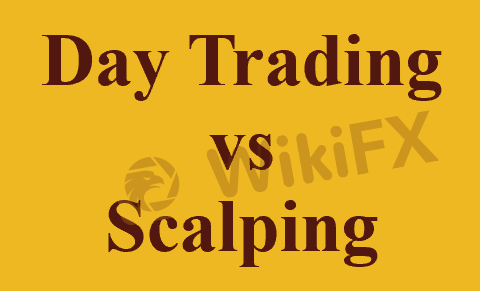
Forex Day Trading VS Forex Scalping: Which One to Choose?
Unravel the clash of Forex day trading and scalping - grasp their tactics, track differences, and tailor your trade.
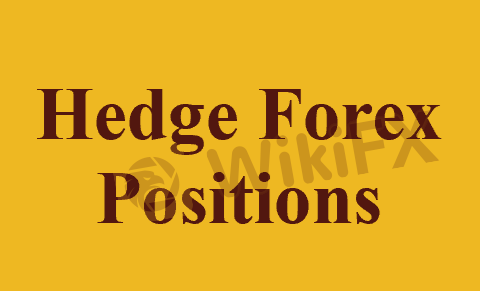
How to Hedge Forex Positions? Some Relevant Strategies to Share.
Dive into Forex hedging strategies - reducing risk, seizing opportunities and securing robust trading profits.
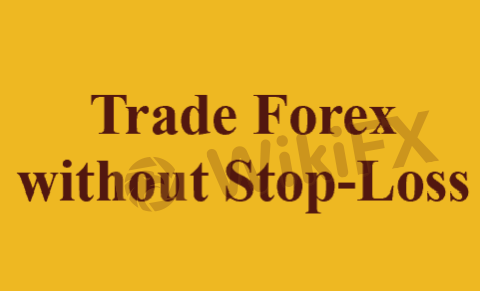
Can I Trade Forex without Stop-Loss? Here Lets’ Discuss
Start Forex trading without stop-loss - understand how it works, explore other options and possible risks.

Forex Market Hours: What is the Best Time to Trade Forex?
Master the clock of Forex trading - optimize profits by knowing the best trading times globally!



